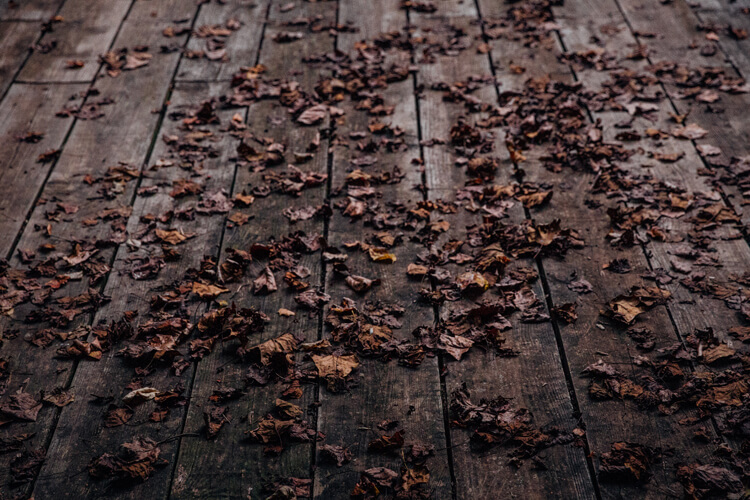What is that smell?
There are numerous aromas our olfactory organs are subjected to each day. Whether it be the smell of food cooking or baking, the distinct aroma of herbs or essential oils, or the unpleasant reek of yesterday’s trash, our nose encounters a host of various scents, both appealing and unappealing. While our sense of smell has many purposes, it is often overlooked as an alarm system. In fact, when it comes to personal safety, our nose is an excellent source for warnings against danger—not just burnt toast. Are there smells that can alert us to potential health hazards or signal that the environment we are in is not safe? Certainly. Aside from the distinct smell of smoke or gas, mold’s pungent odor is a helpful indicator that your health, as well as the health of those living with you, is at risk.
You may have experienced a musty smell in basements or in older homes. That scent is often the result of hidden mold growing in the home. If there is a moisture problem or previous water damage, mold will take advantage of the situation and start proliferating. Homes in dense trees, or with trees too close to the structure that do not allow for enough sunlight to penetrate, can also create an environment for mold growth. Once you smell the mold, it has likely grown enough to become quite a substantial issue.
The smell of mold
The smell of mold is often noticed before its presence is made visually evident. But even though mold may not be visible to the naked eye, your nose is on the case. It may be hiding in walls or cabinets, in flooring or furniture, which makes your nose the very first line of defense and, therefore, an invaluable resource for mold detection. The key is recognizing the smell for what it is.
Mold can smell different from person to person, but many report a musty or unpleasant odor as the main indication of mold’s presence. Other possible descriptions of the smell of mold are: an earthy or a fetid stench similar to the smell of rotting organic matter, such as wood. Mold most often grows as the result of water damage or a moisture issue, so another possible indication of mold would be a “damp” scent, much like the smells that follow a heavy rainfall.
What causes a moldy smell?
The smell associated with mold derives from gasses, which are called microbial volatile organic compounds (MVOC). Not all of these gasses produce the odor associated with mold, but some do. When you notice a moldy aroma, you are inhaling compounds from the mold and possibly toxic mold spores. It is important not to ignore the smell of mold for this reason, as mold spores can be potentially hazardous to your health. You should try to find the source of the smell and investigate the area for visible signs of mold and its cause (leaky pipes, for example). This may require some deep investigation as mold often hides in walls, under carpet, behind wall paper, or even in air-conditioning ducts.
How to prevent a musty or moldy smell
Mold is attracted to moisture. Any water leaks, flooding, or high humidity levels will invite mold growth in the home. It is important to check for leaks in the roof, plumbing, or in basements and other areas prone to let water in a house. Monitor the amount of humidity in the home, especially in basements and bathrooms as these rooms tend to be areas of abundant moisture levels.
It is a good idea for every home to have a hygrometer to measure the humidity. The ideal humidity level for a healthy home is 40–50%. You may want to invest in a dehumidifier to have better control of the moisture in your house.
Air-conditioning ducts should also be checked for mold growth or condensation issues. Prevention is the best way to deal with mold. If you have windows that allow a lot of condensation, stay on top of keeping them dry and use a dehumidifier to help prevent them from developing moisture and mold.
What to do when you smell mold
So, what do you do when you notice the smell of mold in your home? The first thing you want to be aware of is that mold is potentially very harmful to your health. Do not simply cover up the smell with fragrances. Air fresheners and disinfectant sprays will not kill the mold or solve the issue. Even opening a window or diffusing essential oils will not be effective, though they could help reduce the mold spores indoors for a short-term until you can get the mold removed. If you can relocate until the mold is gone, that would be advisable. If you can’t locate the mold, then next step is to find a local mold professional to detect the mold’s exact location, evaluate the severity of the situation, and advise you accordingly.
Areas to check for mold:
- Leaks (around windows, roof, plumbing, walls, basement)
- Appliances (freezer/refrigerator, dishwasher, washing machine)
- Air-conditioning units and ductwork
- Condensation (windows, bathroom, kitchen, exterior walls)
Testing for mold
If you have noticed the smell of mold in your home, but do not see mold, you should still get your home tested for mold. Mold is excellent at hiding, so don’t brush off a persistent odor in your house, even if it doesn’t smell “moldy” to you.
In the case that you do find mold, be aware that just because it was easy to locate because of how strong the smell was, that doesn’t mean it is the only mold hiding in your home. Chances are, if mold is growing in one place, it could be growing elsewhere without putting off such a strong odor as the one you found. There are home test kits for mold, however those can be inaccurate if not done properly. A professional mold tester will be able to make a thorough investigation to uncover any mold lurking in your home. (For a list of local mold professionals in your area, check out this directory of mold experts.)
Removing mold and mold smell
Once you know where the mold is and how bad the damage is, you can work out a strategy for successful mold remediation.
Always consult a professional before attempting to remediate a mold problem yourself. If you don’t have experience with mold remediation, the United States Environmental Protection Agency (EPA) recommends that any mold problem larger than 10 square feet be examined by an expert. Gloves and respirator masks are suggested to ensure that you do not come in dangerous contact with the mold by touch or with the mold spores by inhalation. In addition, any items that do come in contact with the mold need to be disposed of properly. Sponges, rags, scrub brushes and any preventative attire should be bagged and placed in the exterior garbage bin immediately upon completion of mold removal. Showering afterward and using a natural anti-fungal soap is also wise.
Don’t treat mold with bleach on porous surfaces such as wood and drywall. In fact, contrary to popular opinion, bleach won’t kill the mold. It simply changes the mold’s natural coloring and only temporarily hinders its growth. After the initial shock of the harsh chemicals, the mold will continue to grow as if nothing ever happened.
Because mold is so versatile, it can withstand a variety of chemicals and environments. Even if it is damaged or goes through a period without the optimal nutrients needed for growth, mold can lie dormant until conditions improve. This is why mold can be seen returning in areas that were already treated. In reality, the mold was never destroyed to begin with. Often, mold needs to be cut out completely and the damaged materials removed from the house before being disposed of in a safe manner.
Hiring a mold remediation company to remove mold
Mold remediators are professionals who are trained to deal with mold safely and effectively. You will want to do your research on which remediation company you would like to hire. Look for reviews and other indicators that they are honest and thorough. Do not hire the same company that tested for mold in your home. Make sure they are certified and insured. Ask what remediation methods they use. Do not be bullied into a hiring a service you are not fully informed on and confident of. (For more information, check out this list of other questions to ask when hiring a mold remediation company.)
Conclusion
If you think you smell mold, do not ignore the situation. Find where the mold is hiding and safely remove it or hire a professional to conduct the mold remediation for you. Do not compromise your health. Make sure your home is a healthy place to live with no mold and no musty or unhealthy odors. Your life and the lives of those you love depend on it.


